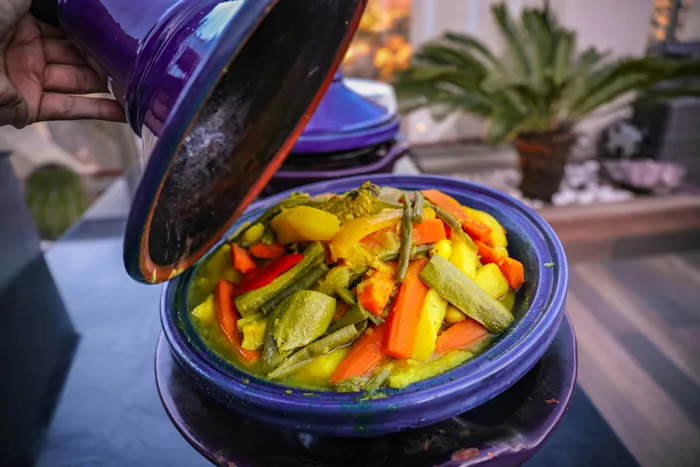7 ways to conserve water while cooking

Make one-pot meals. Picture: Pexels/Naimbic
Water is a pretty integral part of food preparation. I’m always looking for ways to make my kitchen more efficient and to use a little less water.
Below are some great tips for water-efficient food preparation.

Be resourceful
One of the simplest ways to save water in the kitchen begins before you even start cooking. Instead of washing fruits and vegetables under a running tap, consider soaking them in a basin of water.
This method is not only effective in cleaning your produce but also significantly reduces water waste. Afterwards, the same water can serve another purpose, like watering your garden.
Additionally, when planning your meals, opt for dishes that require minimal water for preparation and cooking. Efficient water use starts with smart planning, ensuring that water conservation becomes a natural part of your cooking routine.
Steam vegetables instead of boiling
Steaming only uses little water, and is generally healthier too. Steaming works for vegetables like potatoes, beetroot, broccoli, cauliflower, asparagus, carrots,and parsnips; it retains all of the nutrients in the vegetables.

Thaw in the fridge
While putting frozen food under running water will help it defrost quickly, it is also a needless waste. When you think you might want to roast a chicken for dinner, put it in the fridge the night before to let it thaw safely and slowly.
Make one-pot meals
It is easier to cook it all together and it is much easier to clean up when you are done.

Explore different cooking methods
Experiment with dry-heat cooking methods such as pan-frying, baking, broiling, roasting, grilling and deep-fat-frying. These methods are used to caramelise and brown foods, giving them a deep and rich flavour.
Don’t run the tap
When rinsing a large amount of produce, fill the sink halfway or fill a large bowl or basin with water instead of rinsing under a running tap.
Use a vegetable scrub brush when needed to assist in cleaning the food instead of using the kitchen faucet like a power washer.

Cook pasta in less water
Conventional wisdom dictates that you must cook pasta in a large amount of boiling water. You can cook it in a small amount of water at a simmer. You conserve water and energy this way.